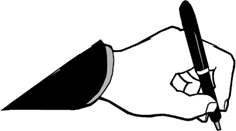V. Choose the correct indefinite pronouns.
There is … on the sofa. What can it be?
a) somebody b)some c) something
Does … speak German?
a) any b)anybody c)anything
May I ask you … questions?
little b)a few c)much
She knows ....about it.
a) much b) many c)few
Have gou got at least … news about him?
a) many b) little c) a little
My sister asked … to help her to move to a new flat.
a) something b)somebody c)anybody
These boots are more fashionable that those … .
a)ones b)one c) any
There isn’t … funny in what you are trying to tell me.
a) anyone b)something c)anything
VI. . Complete the dialogue. Use indefinite pronouns.
Nick: Hello, Jane!
Jane:………………..!
Nick: You are not doing anything tonight, are you?
Jane:......................................
Nick: It’s just that my new next-door neighbours are having a party and they also invited me to go. I thought maybe you’d like to come.
Jane:..........................................
Nick: What’s your idea of a good evening then?
Jane:............................................
Nick: That’s very boring! Look, the party’s not going to go on late. We’ll stay there for some hours. oh, please come! It’ll be good fun.
Jane:.......................................
Nick: That’s all right. I’ll come over in the car and pick you up. How long will it take you to get ready?
jane:........................................
Nick: Okay, see you soon then. Bye.
jane:.................................
Іменник – це повнозначна частина мови, яка означає назви предметів і речовин, живих істот, явищ і абстрактних понять.
A book, chalk, a child, rain, beauty.
Морфологічні характеристики іменника
1. Відмінок
(Case)
|
Називний відмінок (The Nominative Case)
|
Присвійний відмінок(The Possessive (Genіtive) Case)
|
2. Число (Number)
|
Однина (The Singular)
|
Множина (ThePlural)
|
Морфологічний склад іменників
Іменник (Noun)
|
Прості (Simple Nouns)
a map, a town, milk
|
Похідні (Derivative
Nouns) a reader, childhood,
inexperience
|
Складні (Compound Nouns)
snowball, railroad
|

ЧИСЛО ІМЕННИКІВ
(The Number)
Множина більшості іменників утворюється додаванням -(e)s до форми однини.
Singular
|
Plural
|
lamp
dish
|
lamps
dishes
|
Закінчення -(e)s вимовляється:
[s] [z] [iz]
після глухих після голосних і після букв s, z, x,
приголосних дзвінких приголосних
буквосполучень
maps, cats dogs, seas sh, ch, tch
roses, benches, boxes
Множина іменників
(The Plural of Nouns)
Утворення
|
Закінчення
|
Приклади
|
1. У словах, що закінчуються на сибілянти
|
-es
|
- classes, matches
|
2 . У словах, що закінчуються на -у зпопередньою приголосною. . У словах, що закінчуються на -у зпопередньою приголосною.
|
-es(-у змінюється на -і)
|
- babies, flies
|
3. У словах, що закінчуються на -yз попередньою голосною
|
-s
|
- toys, rays
|
4. У словах, що закінчуються на – о
|
-es
-s or -es
-s
|
- tomatoes, potatoes, echoes, heroes
- zeroes / zeros
tornadoes / tornados mosquitoes / mosquitos volcanoes / volcanos
- pianos, radios, studios, photos, videos, zoos, autos, solos, tattoos, kilos
|
5. деякі слова, що закінчуються на -f або -fe
|
-s or -es(-fзмінюється на -v)
-s (-f не змінюється)
|
- calf – calves,
leaf – leaves,
thief – thieves,
half – halves,
loaf – loaves,
hoof – hooves(hoofs), wharf – wharves(wharfs), dwarf – dwarfs(dwarves)
- beliefs, chiefs, roofs, cliffs
|
Інші шляхи утворення множини іменників
1
|
Зміна кореневої голосної
|
a man – men, a woman – women, a foot – feet, a tooth – teeth,
a goose – geese, a louse – lice
a mouse – mice
|
2
|
За допомогою закінчення -en
|
child – children, ox – oxen
|
3.
|
Деякі іменники мають одну і ту ж форму однини і множини.
|
deer, fish, series, sheep, crossroads,
means, headquarters, hair, fruit
|
|
Однак у значенні окремих сортів, видів вони можуть мати форму множини.
|
fish (риба) – fishes (окремі види риб)
fruit (фрукти) – fruits (окремі види фруктів)
hair (волосся) – hairs (окремі волосини)
|
4
|
Тільки форму однини мають:
а) назви деяких ігор, хвороб, назви предметів та слово news
б) на відміну від українських відповідників такі іменники, як
|
a) news, physics, billiards, measles, athletics, phonetics. Phonetics іs my favourite subject.
b) advice – порада, поради, information, knowledge, progress, money. Our knowledge of English is good.
|
5
|
Тільки форму множини мають:
а) iменники, що озна-
чають парні предмети
|
- scissors, spectacles, glasses, sneakers, jeans, trousers, scales, pliers, shorts, tongs, pyjamas, shoes
|
|
б) інші іменники, які вживаються тільки в множині
|
- police, clothes, congratulations, contents, customs, funds =(money), goods =(товари), manners, outskirts, stairs, thanks,
arms = (weapons), people, savings. Her clothes are nice.
|
6
|
Запозичені іменники мають особливі форми множини.
закінч. одн. → закінч. множ.
-us → -i
-us → -a
-a → -ae
-um → -a
-is → -es
-ex-ix → -ices
-on → -a
-eau → -eaux
-o → -i
|
alumnus – alumni
corpus – corpora
formula – formulae
medium – media
thesis – theses
index – indices
phenomenon – phenomena
bureau – bureaux
virtuoso – virtuosi
|
7
|
У складних іменниках, що утворені декількома основами, закінчення додається до останнього елемента
|
newspapers, schoolgirls
|
8
|
Складені іменники (типу іменник + прислівник) – закінчення додається до іменника
|
passers-by, listeners-in, runners-up
|
9
|
Іменники, що закінчуються на in-law мають дві форми
|
sisters-in-law or sister-in-laws
|
10
|
Якщо складові частини не іменники, то закінчення додається до останнього елемента
|
forget-me-nots, close-ups, take-overs, sit-ins, stand-bys, lay-bys, break-throughs.
|
11
|
Іменники family, team – як єдине поняття сім’ї (команди) узгоджуються з дієсловом в однині
|
His family is very friendly
|
12
|
Іменники family, team – як члени сім’ї (команди) узгоджуються з дієсловом в множині
|
The family are intelligent.
|
13
|
Іменники, які закінчу-
ються на -ful мають дві форми
|
spoonfuls рідко: spoonsful
mouthfuls mouthsful
|
ПРИСВІЙНИЙ ВІДМІНОК ІМЕННИКА
(The Genetive Case)
Утворення (The Formation)
|
Приклади
|
1. Іменник в однині
|
child + 's = child's toy
|
2. Іменник в однині
з закінченням -s
|
actress + 's = actress's address, boss's office
|
3. Деякі іменники в однині з закінченням -s (видатні прізвища, іноземні власні назви) - ' або 's
|
Achilles'/Aсhilles's heel Dickens's / Dickens' realism
|
4. Іменники в множині з закінченням -s
|
My friends’ names
|
5. Іменник в множині без закінчення -s
|
Children’s room
|
6. Певна смислова група слів
|
Ilf and Petrov’s novel
Peter and Mary’s flat
|
Вживання (The Usage)
|
Приклади
|
1. назви істот
|
Jane’s coat, the cat’s tail
|
2. час, відстань
|
a month’s salary
ten miles’ distance
|
3. назви країн, міст, а також слова country, town. city, world, ocean, river, nature
|
Kyiv's parks, nature's resources,
the river’s banks
|
4. назви планет: the Sun,
the Moon, the Earth
|
the Earth's geography
|
5. збірні іменники: party, army, family, society, government
|
government's policy
|
6. назви магазинів, установ, будинків (наступний іменник shop, place, office може опускатись)
|
at his grandfather's
at the doctor's
|
 Exercises Exercises
I. Underline the correct item. Comment on the use of the Genitive Case and the Number of the Nouns.
Jeans/jean are/is usually made of denim. It is a strong, usually blue, cotton cloth. The history of jeans/jeans's history is rather curious. It was in 1850 in the USA. Mr. Levy Strauss was one of those who sold cloth for gold-miners’/gold- miner’s wear. The miners had to change it often.
Once he bought strong cotton cloth/clothes and sew working trousers of it. They were much stronger and gold-miners liked new trousers, called jeans, very much. For one hundred years jeans was/were the working clothes/ cloth only. In 1950-s trousers became fashionable for young people. It's interesting that jeans are/is in fashion till now.
II. Put the words in the brackets into the plural where necessary.
A. Did you go shopping on Saturday?
B. Yes, I did. I bought lots of things.
А What did you buy?
B. I bought two (I) scarves (scarf) and three (2) ... (T-shirt).
A. Did you buy anything else?
B. Yes. I went to a lovely shop and bought six (З) … (cup) and four crystal (4) ... (glass).
A. Gosh! You have really bought lots of things!
B. And I also went to the zoo on Saturday's afternoon.
A. Really? Which animals did you see?
B. Well, first I saw a (5) ..(lion) and then I saw two (6) ... (giraffe), three (7) (deer), two (8) ... (tattoo) and four (9) ... (monkey). It was a great day.
III. Complete the sentences using the noun in brackets in the singular or plural form
1. He placed all the important … in his brief-case. (paper)
2. I need some ... to write this message on. (paper)
3. I'm going to have my ... cut tomorrow. (hair)
4. There were some … on his coat. (hair)
5. Susan only wears her ... when she reads. (glass)
6. These ornament is made of coloured .... (glass)
7. I haven't got any ... to lose (time)
8. How many... did Nick phone? (time)
9. You shouldn't eat too much ... (chocolate)
10. We gave her a box of... (chocolate)
IV. Choosethe correct word.
1) A. I have a physics exam tomorrow.
B. Oh dear. Physics is/are a very difficult subject
2) A. Did you ask John to fix your car?
B. Yes. His advice was/were very useful.
3) A. Have you just cleaned the stairs?
B. Yes, so be careful. They are/is very slippery.
4) A. My little sister has got measles.
B. Oh, dear. Measles is/are quite a serious illness.
5) A. What happened to that escaped criminal?
В. The police is/are still looking for him. |
 Скачать 2.7 Mb.
Скачать 2.7 Mb.

 . У словах, що закінчуються на -у зпопередньою приголосною.
. У словах, що закінчуються на -у зпопередньою приголосною.